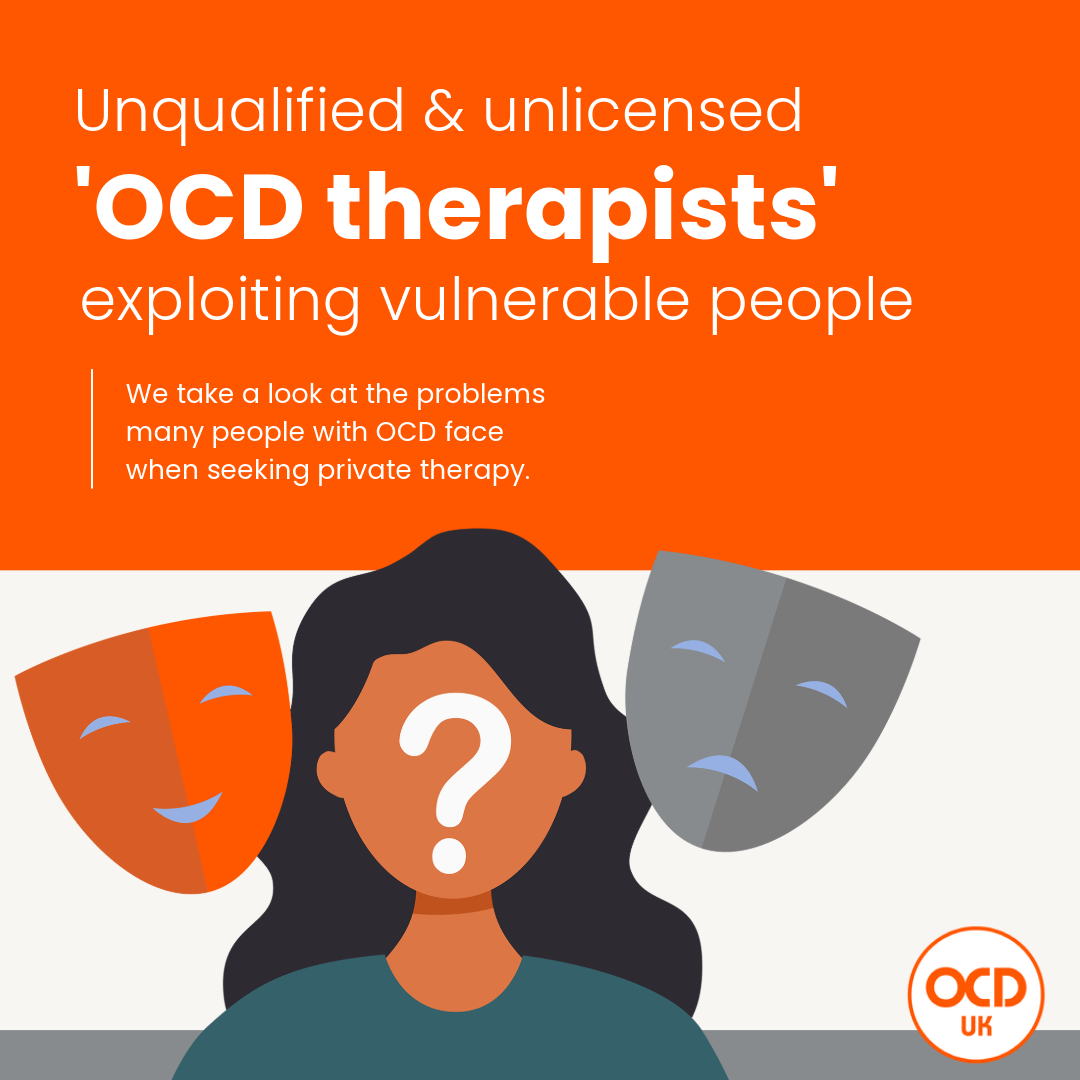 With a myriad of OCD treatments available, and online offers of quick fix cures for OCD we are often asked about private treatment and private therapists.
With a myriad of OCD treatments available, and online offers of quick fix cures for OCD we are often asked about private treatment and private therapists.
We primarily, although not exclusively, base our recommendations on the best NHS evidence we have access to and also from service-user feedback across our various platforms, with service-user feedback being especially helpful and relevant where lesser known treatments or private therapists are used. For that reason, the treatment we recommend to overcome OCD is Cognitive Behavioural Therapy (CBT), a form of talking therapy that includes Exposure and Response Prevention (ERP), regardless if that is sought through the NHS or privately.
Unfortunately, finding a private therapist is effectively a minefield that can prove to be very, very costly! So to help we have put together some advice to help make navigating that minefield somewhat easier, check out our ‘finding a private therapist’ advice on the next page too.
When someone seeks a private CBT therapist, in our experience they will be looking for one of two things:
- A good local therapist and/or
- An OCD specialist.
But why do people seek a private therapist?
There are a variety of reasons for that, but some of the main reasons people give us are:
- They don’t want to see their GP or have OCD on their medical records
- They believe private therapy is better than NHS therapy
- They want to access CBT quickly
Our job is to signpost people to private treatment pathways that are appropriate and to health professionals with appropriate qualifications and experience. But before we help you with that, let’s debunk some of the reasons people have for seeking out private therapy.
They don’t want to see their GP or have OCD on medical records
People worry that having OCD on their medical records may hinder them at some stage later in life, usually by impacting on their career prospects.
But if you think about it, that worry is a little like OCD in many ways, it’s worrying about something that might never happen. What has happened right now though is OCD, so it’s important to not let this worry become a barrier to seeking treatment that tackles OCD.
The danger of not tackling OCD for this reason, is it can become so bad a person cannot work, if that happens having OCD on medical records is a lesser of the two problems. Whilst we can’t guarantee having OCD on your medical records will never be a problem, we can absolutely guarantee that not tackling OCD will be.
They believe private therapy is better than NHS therapy
This really is a myth and not the case at all, we remain incredibly lucky that some of the best OCD experts in the UK are NHS employed. Of course some of those work privately too, but the majority of OCD specialists in this country only work through the NHS.
The truth is that both through the NHS and working privately there are CBT therapists that know a lot about OCD and there are those that know very little, but the point is, seeking private therapy does not guarantee better quality therapy.
They want to access CBT quickly
This is arguably the only real benefit of going private. Whilst NHS treatment is free at the point of delivery, waiting times are the price we pay for that free access. The good news is that waiting times are improving (slowly), but there is still much work to do.
What some of our service-users choose to do is seek private therapy whilst waiting for NHS therapy. At the point their NHS therapy becomes available, our advice is to review if progress is being made with the private treatment and if so, then it may be worth sticking with it, if not, then you may wish to discontinue the private treatment, and pursue the NHS option.
But, what about advice for finding a private therapist?
Well ok, you’ve decided going down the private route is the best option for you, so on the next page we will cover some of the basics about what to expect, and what to look for to help you navigate finding a private therapist.
What to read next:























